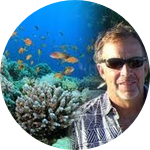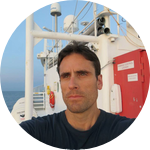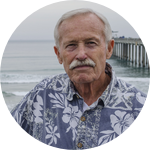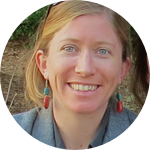About This Project
Coral reefs are declining worldwide due to numerous local and global threats. No-take marine reserves are increasingly being established to help promote coral reef recovery and resilience, but we still have a limited understanding of if, and how, protection might benefit a key component of coral health – the microbiome. Using a network of reserves and fished reefs, we plan to investigate this question and its implications for management of corals in a rapidly changing world.
Ask the Scientists
Join The DiscussionWhat is the context of this research?
Unprecedented discoveries of the role that microbes play in host development, behavior, and health are occurring due to advances in technology. Corals are one of the most diverse symbiotic ecosystems – housing > 1 million microorganisms per gram in addition to numerous animals that call corals home. Microbes are essential for coral development and health, by providing nutrients in the form of fixed nitrogen and carbon, as well as protection against bleaching and disease. Disruption of coral-microbial interactions can result coral demise. We aim to elucidate microbial community members found on corals within reserves and fished reefs to determine if reserves aid in the conservation of beneficial microbiota.
What is the significance of this project?
Coral reefs are critically important ecosystems that harbor 1/4 of all marine biodiversity and provide a vital source of food for billions of people. They are also in danger of rapid decline given the current and future threats they now face. Marine reserves are one of our most promising tools to protect reefs and give corals a fighting chance. Given the role microbes play in mediating the health and interactions of organisms and entire ecosystems, we urgently need to identify the microbial players – and their potential effects – on protected coral reefs. Our work will provide key insights aimed at bridging this gap, and will have important implications for both our basic understanding of how these ecosystems function, as well as how to best protect them for future generations.
What are the goals of the project?
We utilized two pairs of no-take marine reserves and adjacent fished reefs in Fiji to plant 3 coral species that vary in their life-history traits and susceptibility to stress (a total of 720 coral colonies). Next, we reciprocally transplanted corals between each reserve and fished reef, collected data on juvenile coral survivorship, and collected samples for microbial analyses. Our goal is to perform Illumina sequencing of the 16S gene to characterize the bacteria and archaea found on corals within these two areas to determine if no-take reserves can improve juvenile coral survivorship by promoting healthy microbial communities. This will require DNA extraction, polymerase chain reaction to amplify and sequence the 16S gene, and use of bioinformatic tools for data analysis.
Budget
We have already completed the labor intensive field work of planting and sampling over 700 corals in two no-take marine reserve and adjacent fished reefs. We have all the coral samples in hand (at Georgia Institute of Technology). Now, we would like to perform Illumina sequencing of the 16S gene to determine if marine reserves aid in the conservation of the critical microbiota needed for coral health. Advances in technology now make this feasible due to lower costs and faster sequencing with Illumina Technologies. The data we obtain will be crucial to our understanding the effectiveness of no-take marine reserves for coral health and reef recovery. Thank you for helping us reach our goal!
Endorsed by
Meet the Team
Cody Clements
Ever since I was young, I've had a fascination with both science and the oceans – especially coral reefs. This eventually led me from the hills of East Tennessee to the other side of the planet to study in Fiji, where I completed my Bachelors and Masters degrees in marine science at the University of South Pacific. During that time, I lived and worked within local communities that depend on the ocean for their livelihoods and are actively seeking approaches to blend traditional management with cutting edge science to protect and restore their reefs. Given the threats currently facing coral reefs, both in Fiji and across the world, the need to understand these diverse and complex ecosystems is more important than ever. The scientific tools that are now at our disposal also allow us to explore these questions like never before and make me excited for the discoveries that are yet to come. That's why I chose to pursue a PhD and continue my research in these incredible systems. I'm hopeful that our work will help fill important gaps in both our understanding of how coral reefs function, as well as how best to protect them for the next generation to enjoy and explore.
Deanna Beatty
Growing up in Florida, I have always had a love of the ocean. After obtaining my bachelors degree from Northeastern University in 2008, I moved to San Diego, California to follow my passion for discovery-based science. I worked at Scripps Institution of Oceanography at UCSD with some of the most well-respected marine natural product chemists and microbiologists looking for new antibiotics from the ocean. During this time I was lucky enough to travel to far away places and explore the tiny things that live there (bacteria!). We looked for new compounds produced by bacteria living on the surfaces of coral reef plants and animals, and investigated bacterial interactions in host defense against pathogens. My work at Scripps fueled my interest in obtaining a PhD, further exploring the role microbes play in host and ecosystem health. Ocean health effects us all and I'm fortunate to have the opportunity to explore the tiny things that play a BIG role in the persistence of these diverse and beautiful ecosystems.
Lab Notes
Nothing posted yet.
Project Backers
- 68Backers
- 102%Funded
- $4,100Total Donations
- $59.42Average Donation




